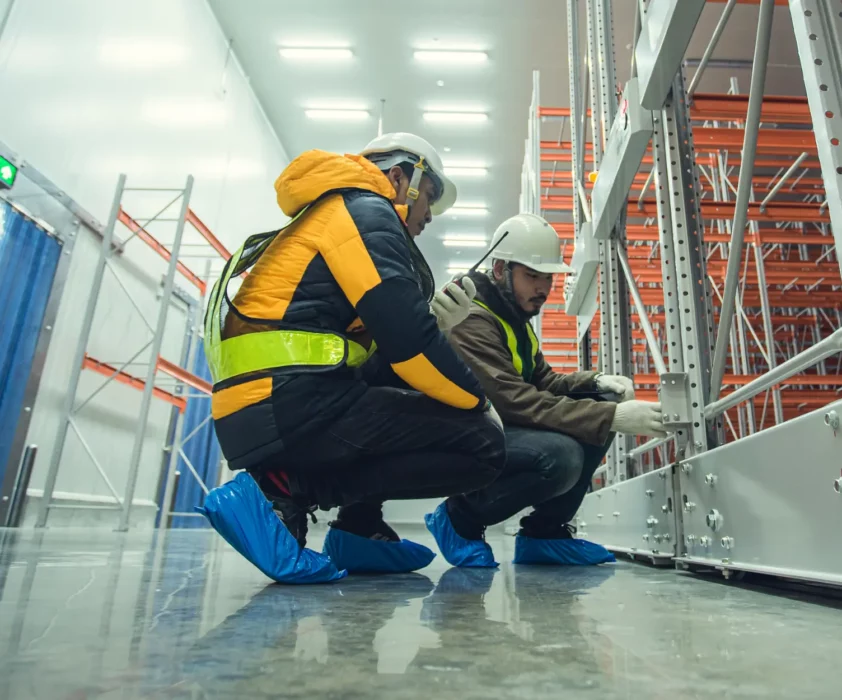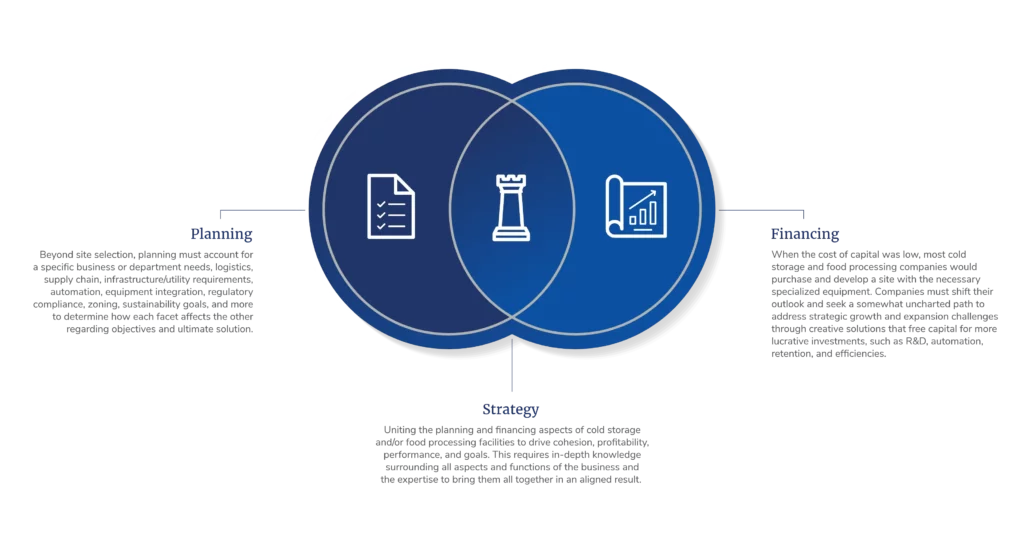
The age of “cheap” money has ended, causing companies to shift their investments and focus on improved productivity and profitability. However, unlike industries experiencing a “slowdown,” the food processing and cold storage industries are in a unique position. Food consumption and consumer behavior changes have caused demand for these facilities to skyrocket and often overlap to meet evolving food and beverage needs.
In 2022, the cold storage industry was valued at $119.7 billion, with estimates indicating the industry will reach $331.5 billion by 2031. Likewise, the global food processing market was valued at $106.9 billion in 2022 and is expected to grow 5.5% annually through 2030. This rapid growth, combined with a shifting economy, has created several challenges for food processing and cold storage users, who are tasked with navigating evolving consumer demands, higher capital costs, higher labor expenses, labor shortages, strict regulations, and more while driving profitability.
With so many components to consider, and the cost of capital high, it can seem almost impossible for users to develop a strategy that sets them up for success.
For example, the total cost for food & beverage or cold storage operations can range from $300-$1,000+ per square foot—substantially higher than the approximate $150 per square foot needed for a standard industrial or manufacturing building.
While this includes the price of equipment, automation, racking, design, construction, land, and the higher density requirement needed for storage and services (blast freezing, palletization, and the use and development of alternative products), the cost per pallet position or the cost of goods sold for these specialty businesses is critical to right-sizing the footprint to maximize the ROI of the real estate solution.
This is why today’s market requires a shift in its approach to food processing and cold storage operations, one in which each business component—from site selection to production, processes, and future growth—is assessed holistically to create complete alignment towards clearly defined goals.
Conducting business differently than before.
From startups to large private corporations, real estate solutions must focus on operational efficiencies and flexibility for long-term needs. Since labor, transportation, and raw materials account for the highest costs for any food processing and cold storage business, process and procedure must transcend any one aspect of operations—supporting the larger financing arm through exemplary planning that meets consumer demands and company objectives.
Additionally, strategic, built-to-suit developments should align with production, in-house logistics, distribution, and long-term objectives to ensure the development is conducive to delivering the best possible outcome and options for the overall business. This all-encompassing approach to food processing and cold storage operations provides:
1) A custom space specific to food processing and cold storage specialty needs,
2) Creative capital solutions to allow for investment in the respective business while fulfilling obligations, and
3) Future growth and expansion capabilities.

Delivering value, driving results.
As a result of explosive growth in these specialty cold and food market segments, the need for project delivery often outpaces the market expertise necessary for success. To deliver valuable results, each program or project must have the expertise to navigate through completion to operational commencement, diving into how each project or program interacts with other functions such as supply chain, production, security, and human resources.
By developing plans complete with transportation analysis, labor analysis, facility planning, incentives, cost and time frame analysis, design, construction, equipment, commissioning, and environmental initiatives, Stream’s National Program Management team brings multiple company departments together with a technical expertise that provides a true, end-to-end real estate solution—building resiliency in a client’s existing or growing network.
With cold storage and food processing on the rise and economic uncertainty afoot, companies must move beyond the confines of a traditional business approach to remain competitive, capturing opportunities with creative solutions that begin with the business program first, then real estate.
Tom Porter is Vice President and Food Processing and Manufacturing Lead for Stream’s National Program Management team. His background includes leading occupiers such as Monin Gourmet Flavourings, Mycoworks, and Chick-fil-A through the complex requirements of food and beverage facilities—aligning in-house logistics management, production, and distribution with the development or renovation of a facility.
Bill Moultrie is Vice President and Industrial Cold Storage Lead for Stream’s National Program Management team. His extensive background includes real estate, development, design, construction, and equipment integration within the cold storage industry, working with such corporations as Chick-fil-A, Primal Pet Foods, Gourmet Foods International, and General Mills.

